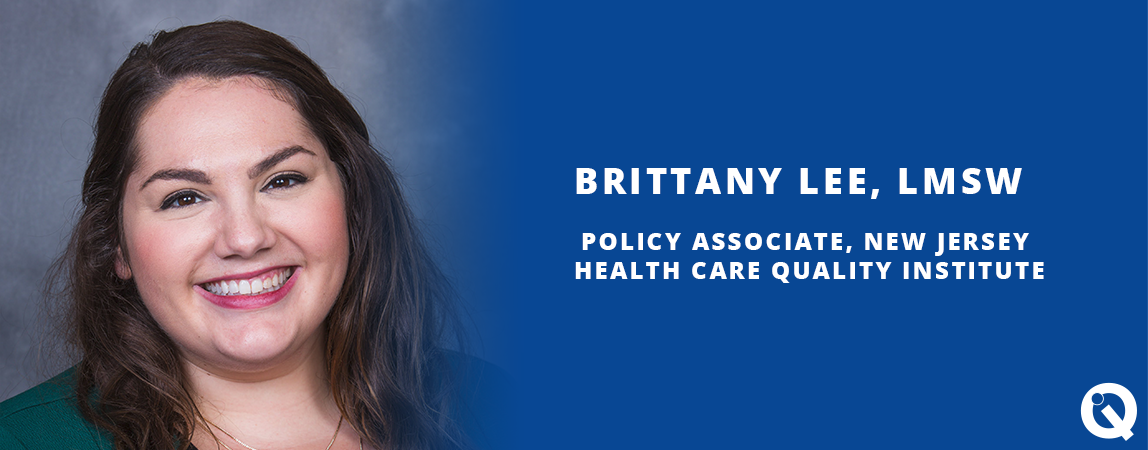Brittany Lee, LMSW, recently joined the Quality Institute as a policy associate. In this Take Five, Brittany discusses the focus of her work.
Can you tell us how you will advance the Quality Institute’s mission?
I joined the Quality Institute primarily to concentrate on reproductive health issues. There is a significant need to improve education and accessibility of these services, specifically for populations that might face barriers to care related to socioeconomic status or stigma around utilizing contraception. The Quality Institute is hoping to address and alleviate some of these barriers — particularly through provider education efforts. We want to make sure providers are able to give their patients as much information and options for their reproductive health as possible so women are empowered to make the decisions that are best for themselves and their families.
Will you be collaborating with the state of this work?
First Lady Tammy Murphy identified access to contraception as part of her initiative around maternal and child health. Giving women the ability to plan their pregnancies in a way that works best for them and their families is closely connected with many of the issues around maternal health and maternal mortality in the state. We’ve seen that when women have more autonomy, control and education around planning for when or if they choose to become pregnant and if they are connected to family planning providers, quality outcomes increase across the board for both mothers and babies.
How does your experience working for the Massachusetts Medicaid program benefit your work here in New Jersey?
I previously worked for Medicaid as they were transitioning over a million members over to their new delivery system, which included managed care organizations and accountable care organizations. So my primary work in that effort was around beneficiary support services and provider and member education about this shift to make sure that folks really understood what was happening — and that they did not lose some of the important nuances of the policy changes in these education efforts. One of our primary goals was to ensure that member services weren’t being compromised to achieve cost savings for the plans. We also did work around social determinants of health and finding unique ways the state could use federal funds to pay for services that may not be explicitly medical but could really impact the overall wellbeing of our members.
What do you see as the barriers to contraceptive services in New Jersey?
I think that providers and health systems are hesitant to provide services that they may not be reimbursed for. So one of the prime examples is long acting reversible contraception (LARC), if providers want to store these devices in their facility to increase access, they might have to pay for that upfront cost. There is even risk associated with ordering the device for a specific patient, knowing that you’re dependent that the patient come back for a second appointment. The risk family planning providers and health systems may have to take on to provide the most effective contraceptive methods, in addition to the confusion around these policies and procedures for payment, is one of the biggest barriers — not just in New Jersey, but across the country.
And finally, what can you tell us a little bit about you outside of your professional life?
I am an avid reader. I usually have about three different books in my bag or in my car that I’m reading at one time. And I’m a huge animal lover. I have a cat and a dog in my one bedroom apartment. So they take up a lot of space in my heart and in my physical location. And I also really enjoy doing yoga. I do yoga at least a couple of times a week.

